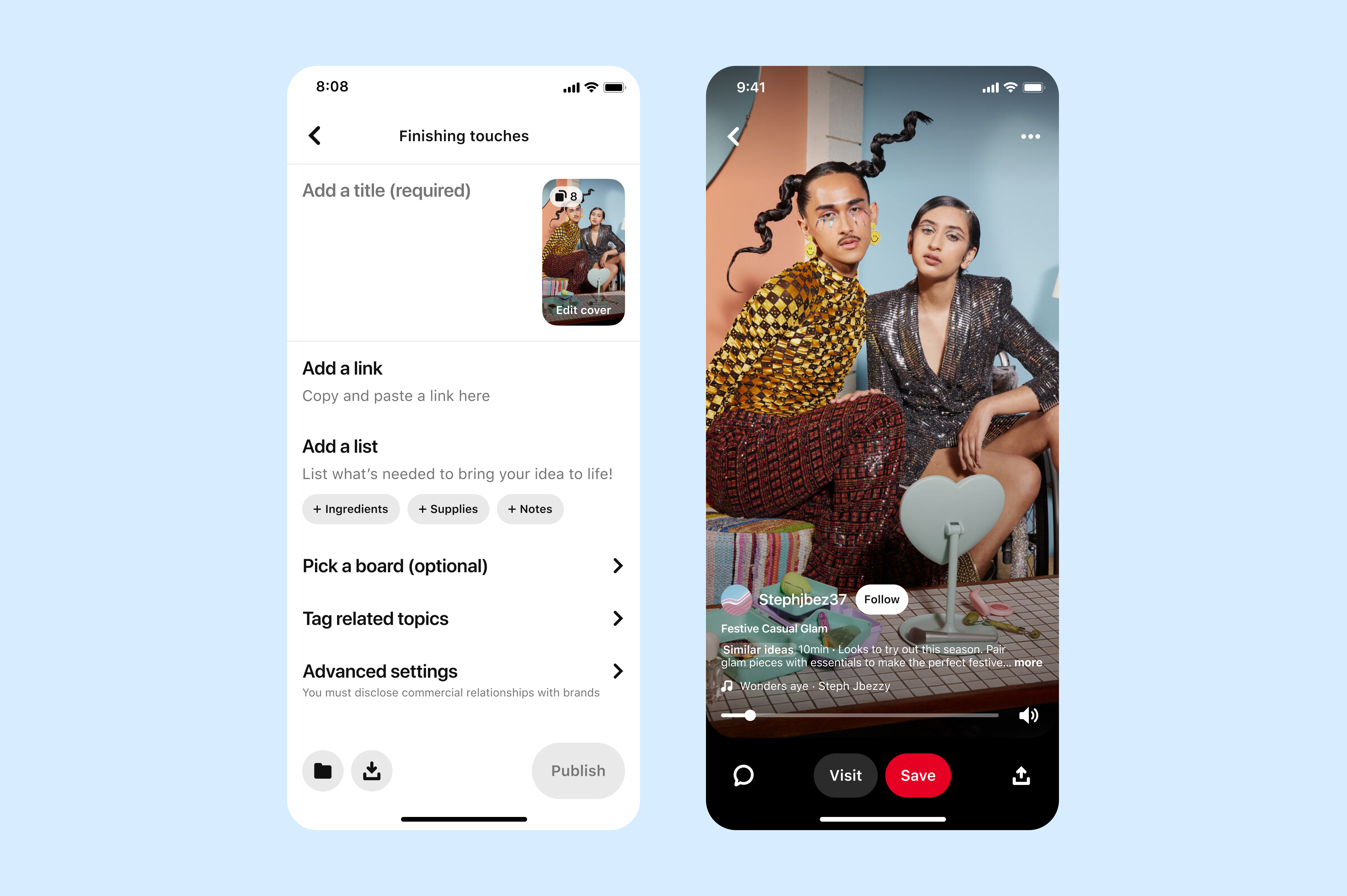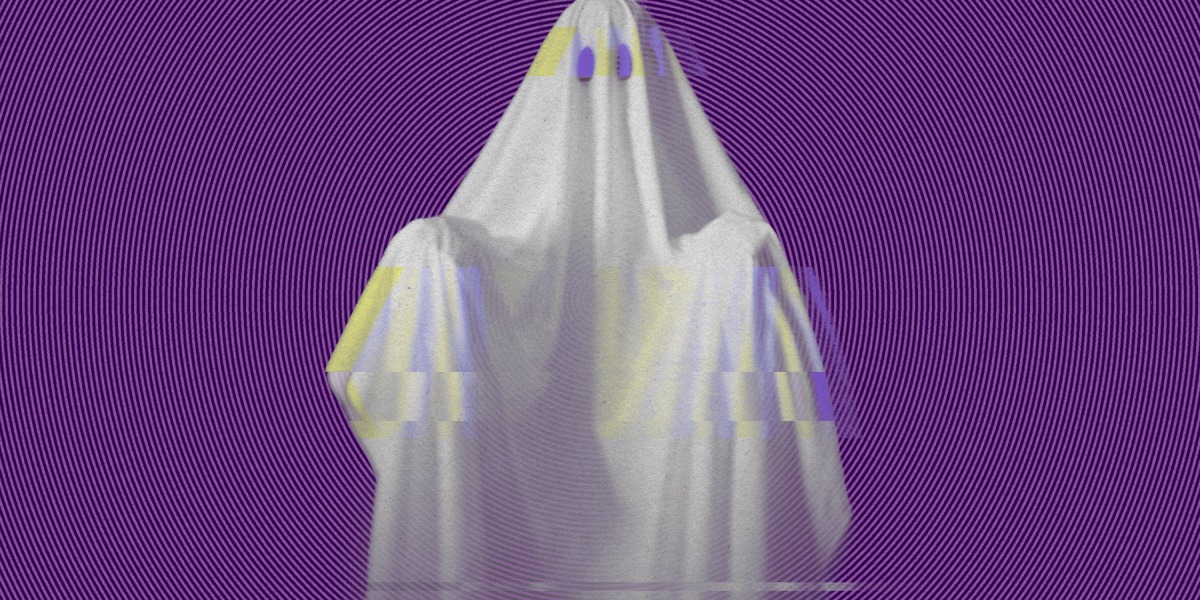Pinterest is combining Pins and Idea Pins into a single format
As Pinterest further shifts its focus to video content following the development of its video-focused Idea Pins, the company says it will now streamline its tools for all Pin formats into one creation flow. That means both video Pins and static images, along with other editing features like stickers and overlay text will now be available from one, updated experience. In addition to these changes, Pinterest is also rolling out a series of new editing features, measurement tools, safety features, and other engagement tools.
To create a video or image Pin going forward, users will just select the “create a Pin” option. The company notes that all content creators will be able to include features like music, text overlay, and stickers to their Pins.
Pinterest says that these changes will make it easier for creators to edit, publish and measure their content, while advertisers will still be able to create Idea Ads, Video Ads, Collection Ads, and Carousel Ads as before.
As a result of these changes, Pinterest users will now be able to access features that were previously only available with Idea Pins or users with a business account, including links, post-publish editing, and flexible aspect ratios. All Pins will include the ability to link to anywhere, which Pinterest says will allow users to monetize their content and further engage their audience.
“We’re excited to unlock another monetization channel through links in all Pins,” the company wrote in a blog post. “Users will be able to add links to all images, videos, and even Pinterest TV livestream, helping drive traffic and make connections with brands. The paid partnership tool and product tagging using affiliate links (for the US and the UK) are now available to everyone as additional channels to make money on Pinterest.”

Image Credits: Pinterest
All video Pins will now also have enhanced metrics, including views and watch time. Users will be able to create Pins using flexible aspect ratios and edit Pin components after publishing including the title, details, and links. This puts Pinterest more on par with rival platforms like Instagram, where select content can be edited post-publication, allowing creators to correct or tweak the text for better performance, for example.
As part of these changes, users will no longer have to tap through multimedia creations with static images and videos. Now, this type of content will automatically play one after another.
Pinterest also announced that all users will be able to start accessing a handful of community engagement features. Users can now add keywords they don’t want to see in comments. Users can create a filter under social permissions in order to auto-hide all comments containing the specific keyword. And users will also be able to respond to content on the platform by creating and uploading a photo. Plus, reactions like heart and lightbulb emojis will be expanding to all Pins.
A new Pin scheduling API will also be available to those using content marketing platforms and creative tools, allowing users to schedule Pins via those platforms.
When Pinterest first introduced Idea Pins in 2021, it seemed that the company was looking to pivot from being an online image board to being more of a creator platform. With these changes, Pinterest is looking to streamline its content creation process under a unified format.
“By creating a simpler, faster way for content creators to harness the power of Pinterest, we are making it easier than ever for our creators to reach an engaged audience, make money, build a brand and express what makes them uniquely special both on and off the platform,” said Pinterest Chief Content Officer Malik Ducard in a statement about the changes.
Additional reporting: Sarah Perez




